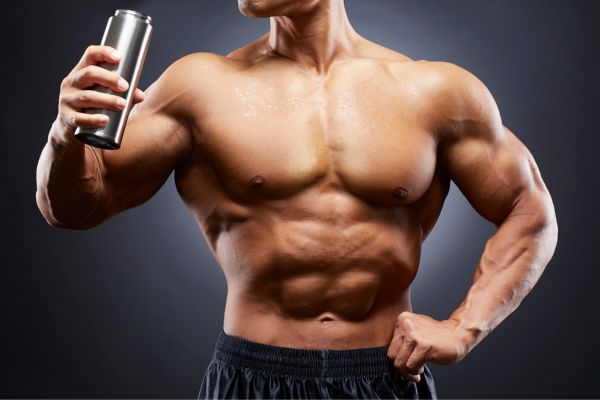When people think about athletic nutrition, the spotlight usually falls on protein shakes and carbs for fuel. But here’s the thing—fats play a bigger role in performance than most athletes realize. The phrase fats in athletic diet might not sound glamorous, but without the right kinds of fats, athletes can’t perform at their best. So, let’s dive into why fats matter, which ones are your allies, and which ones you’d be better off avoiding.
Why Fats Matter in Athletic Diets
You’ve probably heard that fats are just extra calories waiting to be stored. Well, that’s only part of the story. For athletes, fats are a critical energy source, especially for endurance training. They provide more than twice the energy of carbs or protein per gram. When an athlete runs out of quick-burning glycogen, fat steps in to keep the body going.
And it’s not just about energy. Fats also support hormone production, help absorb fat-soluble vitamins (A, D, E, K), cushion joints, and keep inflammation in check. In short, fats in athletic diet are about way more than just fuel—they’re about keeping the body running smoothly from the inside out.
Good Fats: The Athlete’s Secret Weapon
Here’s the good news: not all fats are created equal. Some can actually be your best friend in training and recovery.
Monounsaturated Fats
Think olive oil, avocados, nuts, and seeds. These fats help reduce bad cholesterol and keep the heart in top shape. A strong cardiovascular system means better oxygen delivery to muscles—something every athlete needs.
Polyunsaturated Fats
This group includes omega-3s and omega-6s. Omega-3 fatty acids, found in salmon, chia seeds, flaxseeds, and walnuts, are especially beneficial. They fight inflammation, which is crucial for recovery after intense workouts. Imagine running a marathon and bouncing back faster because your diet had the right fats—that’s the power of omega-3s.
Natural Food Sources
Whole, unprocessed foods are where good fats really shine. An avocado on toast, almond butter in your smoothie, or grilled salmon on your plate—these aren’t just tasty, they’re performance-boosting.
Bad Fats: The Ones to Keep in Check
Not every fat belongs in an athlete’s meal plan. Some fats slow recovery, clog arteries, and mess with long-term health.
Trans Fats
Let’s be real: trans fats are the villains here. Found in processed snacks, fried foods, and margarine, these fats raise bad cholesterol and increase inflammation. The last thing an athlete needs is slower recovery or compromised heart health.
Saturated Fats
Now, saturated fats aren’t completely evil, but too much can cause problems. They’re found in fatty cuts of meat, butter, cheese, and certain oils like palm and coconut oil. While small amounts might be fine, athletes should focus more on unsaturated fats for long-term health and performance.
How Much Fat Do Athletes Really Need?
This is the million-dollar question. Too much fat, and you risk sluggishness. Too little, and your hormones, recovery, and endurance take a hit. The sweet spot? About 20–35% of daily calories from fat, according to sports nutrition experts.
The exact number depends on the type of sport. Endurance athletes might lean on fat more as a fuel source during long training sessions, while sprinters and power athletes rely more on carbs. But across the board, fats in athletic diet shouldn’t be ignored.
Timing: When to Eat Fats for Performance
Here’s where strategy comes in. Eating a high-fat meal right before a workout isn’t ideal—it digests slowly and can make you feel sluggish. Instead, fats are best consumed at other times of the day:
- Before workouts: Keep fat intake moderate so your body can focus on burning carbs for quick energy.
- After workouts: Pair fats with protein and carbs for balanced recovery meals. A salmon and quinoa bowl with avocado? Perfect.
- Throughout the day: Snack on nuts, yogurt with flaxseeds, or hummus with olive oil to keep your fat intake steady.
Fats and Recovery: The Overlooked Advantage
One of the coolest benefits of healthy fats is their impact on recovery. Athletes often think recovery is all about protein, but fats—especially omega-3s—can speed up the process. They reduce muscle soreness, fight inflammation, and support joint health. That’s why athletes who include fatty fish or omega-3 supplements often notice less stiffness and quicker bounce-back after heavy training.
Common Myths About Fats in Athletic Diets
It’s easy to get confused with all the conflicting nutrition advice out there. Let’s clear up a few myths.
- Myth 1: Fat makes you fat. Nope. Overeating in general causes weight gain, not fats alone. In fact, the right fats can help maintain a lean body by keeping you satisfied longer.
- Myth 2: Athletes should cut fat completely. Wrong again. Cutting fats entirely can mess with hormones, energy levels, and recovery. Balance is key.
- Myth 3: Coconut oil is the ultimate health food. While it has some benefits, it’s still high in saturated fat. Use it sparingly.
Building a Fat-Smart Athletic Diet
So, how do you put this all together? The answer is balance and variety. Fill your meals with good fats like avocados, nuts, olive oil, and fatty fish, while cutting back on fried foods and processed snacks. Mix fats with proteins and carbs to keep meals balanced.
For example:
- Breakfast: Oatmeal with almond butter and chia seeds.
- Lunch: Grilled chicken with avocado and olive oil dressing.
- Dinner: Salmon with roasted veggies drizzled in olive oil.
These meals don’t just taste great—they help keep your performance sharp.
Final Thoughts
At the end of the day, fats in athletic diet aren’t something to fear. They’re a crucial piece of the performance puzzle. Good fats fuel your workouts, speed up recovery, and keep your body functioning at its peak. Bad fats, on the other hand, can hold you back, so knowing the difference makes all the difference.
So next time you’re planning your meals, don’t skip the avocado, olive oil, or handful of almonds. Your body—and your athletic goals—will thank you for it.
